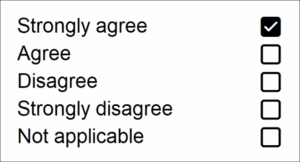From Employee Feedback to Real Change: Why Action Matters More Than the Survey

I’ve been running employee engagement surveys for over 25 years, and one thing still amazes me: how often organisations spend time and money on a survey, only to do very little with the results. Let me be blunt, if you’re not prepared to act on what comes back, don’t bother asking in the first place. You’ll only frustrate people, damage trust, and make your culture worse than it was before you started.
A survey raises expectations. When you invite employees to share their views, you are implicitly saying: “we want to hear you, and we’re prepared to change.” If nothing happens afterwards, the message flips. It says: “we don’t really care, this was just for show.” That’s when cynicism creeps in. And once you lose people’s trust, it’s ten times harder to win it back.
The problem isn’t the survey, it’s the follow-through
Compared with 25 years ago, most organisations genuinely do want to act. The days of surveys being purely a tick-box exercise are fewer, but they still exist. More commonly, what I see is good intentions getting lost in the day-to-day. Leaders get distracted by short-term pressures. Managers lack the skills or confidence to have honest conversations about the results. Or resources simply don’t get allocated to turn insight into action.
And here’s the rub: a survey on its own changes nothing. Data is only the start. What matters is what leaders and managers choose to do with it.
Accountability and capability
There are two levels here. First, accountability. Leaders need to own the big, organisation-wide themes: culture, systems, strategy, diversity, ways of working. These are things only they can shift. If the survey highlights that people lack trust in senior leadership, or that processes and systems are broken, that’s not something a frontline manager can fix. Leaders must take responsibility and be visible in doing so.
Then there’s capability. Local managers and team leaders have to own their own results. That means sitting down with their teams, understanding the feedback, and co-creating actions. But they can’t do that without the right skills and support. Too often, I’ve seen managers handed a workbook and told to “go have a conversation” without any training in how to listen, respond, or manage difficult emotions. We set them up to fail and then wonder why engagement doesn’t improve.
Surveys aren’t expensive; Wasting them is
Surveys today don’t have to be costly. With modern technology and smart design, it’s possible to run them efficiently and at scale without breaking the bank. The real expense comes when surveys are ignored. Gathering feedback and then failing to act on it is like paying for a gym membership and never going. You’ve spent the money, but you get none of the benefits and risk leaving people more disengaged than before.
When organisations take action on survey results, the return is significant. They uncover what’s really happening across an organisation, they give employees a genuine voice, and those insights can improve performance, retention, wellbeing and culture. That’s where the true value lies, not in the survey itself, but in the actions it drives.
What good looks like
I’ve seen both ends of the spectrum. One organisation took their survey results, communicated them openly, the good and bad, and committed to three clear priorities. Leaders owned the big systemic changes, while local teams worked on their own actions. Progress was tracked and shared. A year later, engagement scores improved significantly, but more importantly, people felt they were being listened to.
I’ve also seen the opposite. A survey was launched with lots of fanfare, promises of change, and encouragement to “be honest.” The results came back, some of them unflattering. Leaders sat on them for months. By the time anything was shared, the moment had passed, trust had evaporated, and employees were left more disengaged than ever. That organisation hasn’t recovered to this day.
So what should you do?
It doesn’t need to be complicated. Be transparent with the results, even if they’re uncomfortable. Prioritise a small number of meaningful actions rather than trying to boil the ocean. Give managers the skills and confidence to have conversations with their teams. And make sure leaders don’t duck the tough stuff, they need to own and deliver the changes only they can.
And above all, keep the conversation going. Engagement isn’t built in a once-a-year burst of activity after a survey. It’s built in the everyday actions, decisions and behaviours of leaders and managers.
My challenge to you
So, here’s my challenge: the survey is the easy bit. What matters is what happens next. If you’re not prepared to commit to acting on the results, don’t ask in the first place. Save your money, and don’t waste your people’s trust.
But if you are prepared to listen, act and follow through, then surveys are one of the most powerful tools you have. They can strengthen culture, build trust, and drive performance in ways few other initiatives can.
The choice is yours but make it a deliberate one.
If you want a survey that delivers real insight and action, not just data, we’ll help you every step of the way – from design to delivery and beyond. Contact us now!